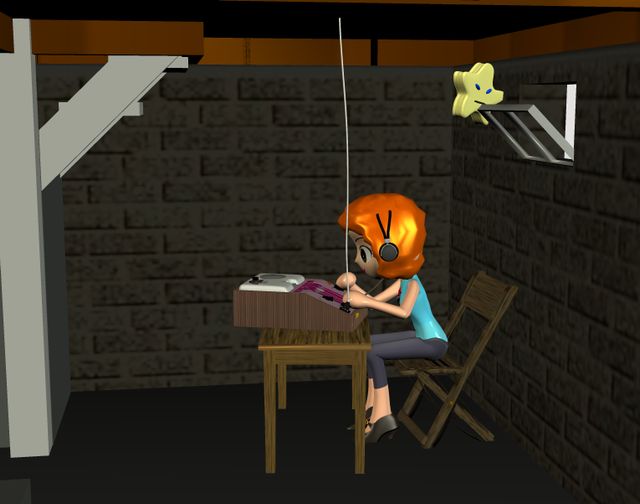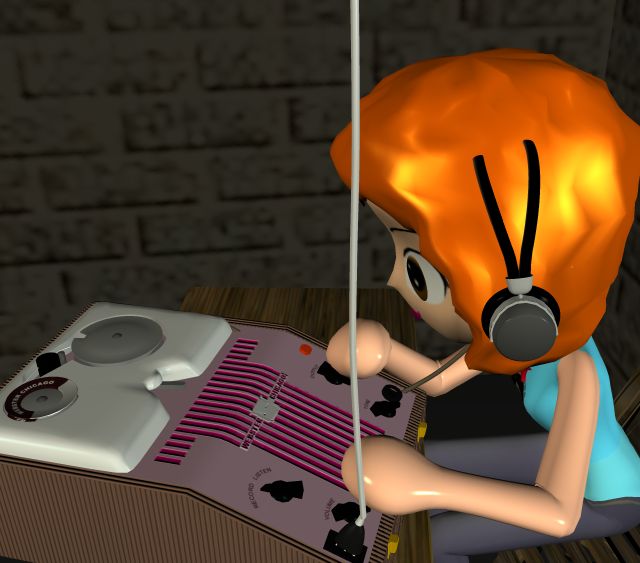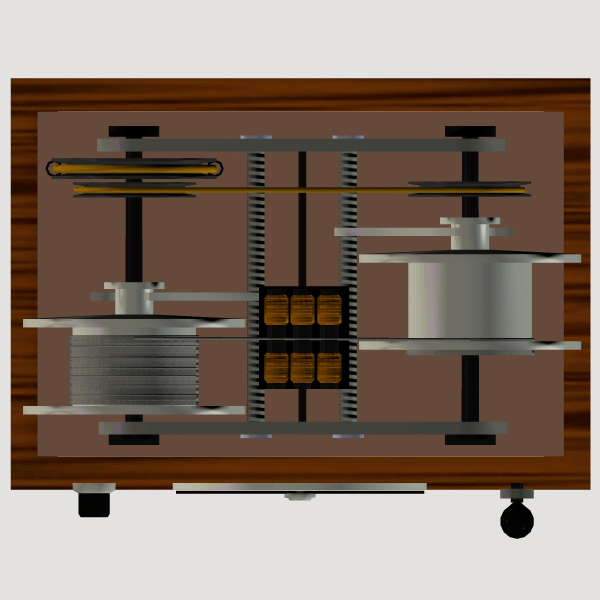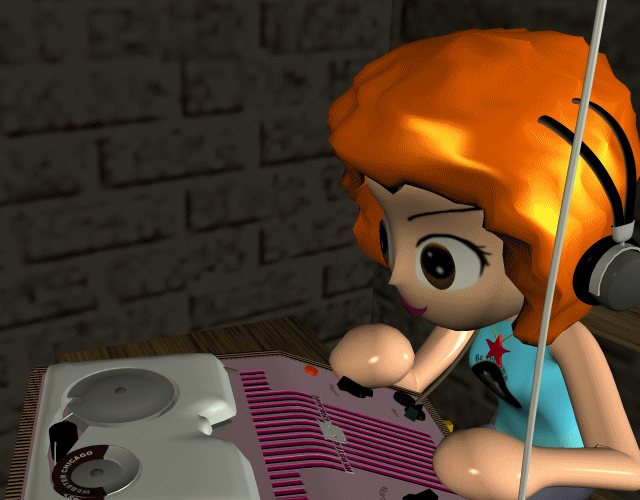Thursday, June 04, 2020
The Webster Chicago wire recorder
Editorial:
This item doesn't really fit my usual criteria. It's a complex modern machine, not 'patient' or ancestral.
I decided to make it as a form of salute to the police, who are doing a nearly impossible job. They're hammered from above by evil politicians who want to neuter them entirely, and they're literally killed from below by "activists" of "both" "left" and "right" who are equally sponsored by the same Deepstate that runs the evil politicians.
In some places the police have gone along with the commands to create chaos, but not here. From the start of this grotesque mess the cops have maintained EQUIPOISE, letting normal people do normal things while trying to stop the worst crimes and riots with measured force. Regular city cops (NOT FEDERALS) are the last true defenders of civilization.
I recognized this EQUIPOISE earlier, after observing that young gangsta types shared my respect. Jailbirds know better than most folks how police can go wrong, so we recognize when police are doing the right thing.
The EQUIPOISE paid off when the "left" and "right" idiots got serious a few days ago. Calm was restored quickly with minimal damage, and SO FAR the idiots haven't resumed their idiocy.
= = = = =
The Webster Chicago fits this salute because it was specialized for law enforcement use, and was actually used by cops. This model appears in many movies and TV shows from the 40s and 50s, and is mentioned in many legal decisions.
 The Webster was optimized for hard use and clandestine use. The speaker was protected behind the metal panel, and the reels and head were recessed inside a metal superstructure so random motions wouldn't halt them or knock them off. Input plug on left, and output plug on right, were both unique, not standard. An unauthorized user couldn't just plug in ordinary mics or phones. The controls allowed you to listen through the speaker or earphones, as Polistra is doing here. Unlike acetate disks or Dictaphone cylinders, the source reel (left) could fit in a coat pocket, and couldn't be crushed or cracked in a scuffle. Even the brand name helped. Webster Chicago sounds tougher than other brands of similar equipment.
The Webster was optimized for hard use and clandestine use. The speaker was protected behind the metal panel, and the reels and head were recessed inside a metal superstructure so random motions wouldn't halt them or knock them off. Input plug on left, and output plug on right, were both unique, not standard. An unauthorized user couldn't just plug in ordinary mics or phones. The controls allowed you to listen through the speaker or earphones, as Polistra is doing here. Unlike acetate disks or Dictaphone cylinders, the source reel (left) could fit in a coat pocket, and couldn't be crushed or cracked in a scuffle. Even the brand name helped. Webster Chicago sounds tougher than other brands of similar equipment.
 Wire recorders have to solve the problem of distribution. Poulsen's original moved the reels back and forth while leaving the head steady:
Wire recorders have to solve the problem of distribution. Poulsen's original moved the reels back and forth while leaving the head steady:
 Webster kept the reels steady while the wire passed through a slot in the head, which moved slowly up and down to distribute the wire evenly on the takeup reel:
Webster kept the reels steady while the wire passed through a slot in the head, which moved slowly up and down to distribute the wire evenly on the takeup reel:
 = = = = =
Back to editorial: Both "libertarians" and "leftists" are alarmed about surveillance by phones and drones and microchips in vaccine. Wrong variable. Surveillance is a good thing. Governments need to know what criminals and foreign enemies are planning, and need to keep an ear to the pulse of the public. The problem is what the Feds, and some local cops, do with the knowledge. When the knowledge is used for NEGATIVE FEEDBACK, to protect the people from crime and invasion, and to shape agendas toward improving the nation, it's good. When the knowledge is used for blackmail and tyranny it's bad.
Blackmail and tyranny are INTRINSICALLY BAD, regardless of surveillance.
= = = = =
Links for Early Recorders so far:
Poulsen's wire recorder
The last windup phono
The Dictaphone
Dictaphone annotator.
Webster Chicago wire recorder.
= = = = =
Back to editorial: Both "libertarians" and "leftists" are alarmed about surveillance by phones and drones and microchips in vaccine. Wrong variable. Surveillance is a good thing. Governments need to know what criminals and foreign enemies are planning, and need to keep an ear to the pulse of the public. The problem is what the Feds, and some local cops, do with the knowledge. When the knowledge is used for NEGATIVE FEEDBACK, to protect the people from crime and invasion, and to shape agendas toward improving the nation, it's good. When the knowledge is used for blackmail and tyranny it's bad.
Blackmail and tyranny are INTRINSICALLY BAD, regardless of surveillance.
= = = = =
Links for Early Recorders so far:
Poulsen's wire recorder
The last windup phono
The Dictaphone
Dictaphone annotator.
Webster Chicago wire recorder.
 The Webster was optimized for hard use and clandestine use. The speaker was protected behind the metal panel, and the reels and head were recessed inside a metal superstructure so random motions wouldn't halt them or knock them off. Input plug on left, and output plug on right, were both unique, not standard. An unauthorized user couldn't just plug in ordinary mics or phones. The controls allowed you to listen through the speaker or earphones, as Polistra is doing here. Unlike acetate disks or Dictaphone cylinders, the source reel (left) could fit in a coat pocket, and couldn't be crushed or cracked in a scuffle. Even the brand name helped. Webster Chicago sounds tougher than other brands of similar equipment.
The Webster was optimized for hard use and clandestine use. The speaker was protected behind the metal panel, and the reels and head were recessed inside a metal superstructure so random motions wouldn't halt them or knock them off. Input plug on left, and output plug on right, were both unique, not standard. An unauthorized user couldn't just plug in ordinary mics or phones. The controls allowed you to listen through the speaker or earphones, as Polistra is doing here. Unlike acetate disks or Dictaphone cylinders, the source reel (left) could fit in a coat pocket, and couldn't be crushed or cracked in a scuffle. Even the brand name helped. Webster Chicago sounds tougher than other brands of similar equipment.
 Wire recorders have to solve the problem of distribution. Poulsen's original moved the reels back and forth while leaving the head steady:
Wire recorders have to solve the problem of distribution. Poulsen's original moved the reels back and forth while leaving the head steady:
 Webster kept the reels steady while the wire passed through a slot in the head, which moved slowly up and down to distribute the wire evenly on the takeup reel:
Webster kept the reels steady while the wire passed through a slot in the head, which moved slowly up and down to distribute the wire evenly on the takeup reel:
 = = = = =
Back to editorial: Both "libertarians" and "leftists" are alarmed about surveillance by phones and drones and microchips in vaccine. Wrong variable. Surveillance is a good thing. Governments need to know what criminals and foreign enemies are planning, and need to keep an ear to the pulse of the public. The problem is what the Feds, and some local cops, do with the knowledge. When the knowledge is used for NEGATIVE FEEDBACK, to protect the people from crime and invasion, and to shape agendas toward improving the nation, it's good. When the knowledge is used for blackmail and tyranny it's bad.
Blackmail and tyranny are INTRINSICALLY BAD, regardless of surveillance.
= = = = =
Links for Early Recorders so far:
Poulsen's wire recorder
The last windup phono
The Dictaphone
Dictaphone annotator.
Webster Chicago wire recorder.
= = = = =
Back to editorial: Both "libertarians" and "leftists" are alarmed about surveillance by phones and drones and microchips in vaccine. Wrong variable. Surveillance is a good thing. Governments need to know what criminals and foreign enemies are planning, and need to keep an ear to the pulse of the public. The problem is what the Feds, and some local cops, do with the knowledge. When the knowledge is used for NEGATIVE FEEDBACK, to protect the people from crime and invasion, and to shape agendas toward improving the nation, it's good. When the knowledge is used for blackmail and tyranny it's bad.
Blackmail and tyranny are INTRINSICALLY BAD, regardless of surveillance.
= = = = =
Links for Early Recorders so far:
Poulsen's wire recorder
The last windup phono
The Dictaphone
Dictaphone annotator.
Webster Chicago wire recorder.
Labels: #bluelivesmatter, defensible spaces, From rights to duties, Jail mode
